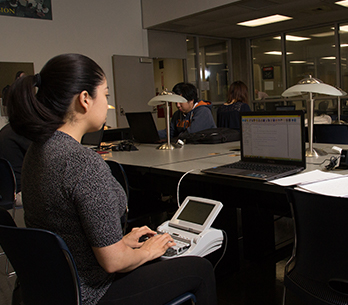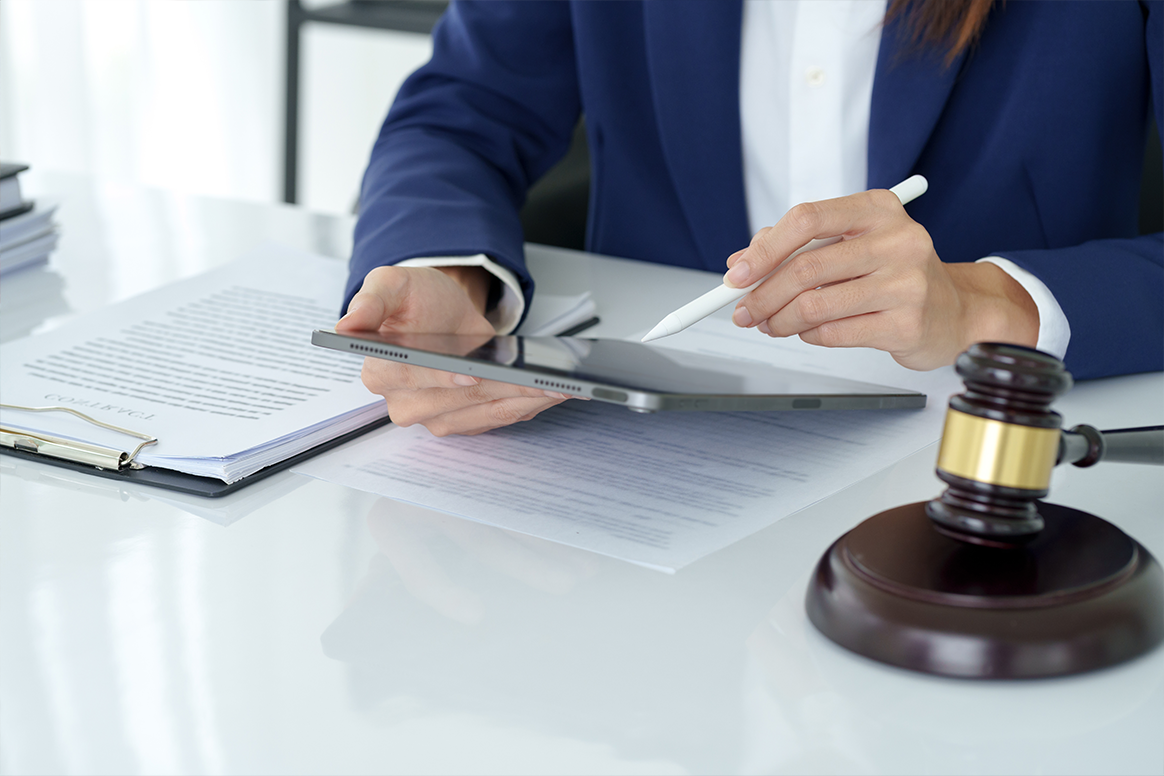Top FAQs Answered About court reporting in Modern Trials
Top FAQs Answered About court reporting in Modern Trials
Blog Article
Recognizing the Crucial Function of Court Coverage in Legal Process
Court reporting is frequently overlooked, yet it's vital in legal proceedings. Allow's check out the essential features of court coverage and its value in the lawful landscape.
The History of Court Coverage
Court coverage has an abundant background that goes back to old human beings, where scribes made use of numerous techniques to catch spoken words. The earliest forms of shorthand emerged in Greece around 400 BC, allowing philosophers and political leaders to record speeches swiftly. As you relocate with background, you'll discover that the Romans took on comparable techniques, improving them to document lawful proceedings. By the 16th century, modern-day shorthand systems started to form, allowing court reporters to create accurate transcripts efficiently.
In the 19th century, the creation of the typewriter changed the occupation, making it much easier to create understandable records. The introduction of steno machines in the 20th century additionally advanced court coverage, allowing real-time transcription during trials. Today, court press reporters play a considerable duty in lawful proceedings, guaranteeing that every word spoken in the court room is precisely recorded. Comprehending this background highlights the value of court reporting in preserving a fair lawful system.
The Skills Required for Court Reporters
As a stenotype reporter, you require solid keying skills to stay on par with the busy dialogue of lawful process. Your ability to listen diligently is simply as crucial, ensuring every word is caught properly. Mastering these skills is crucial to supplying specific and trusted transcripts.
Skilled Keying Capacities

Strong Listening Skills
Solid paying attention abilities are essential for court press reporters, as they must properly record talked words in real time. This skill helps you distinguish between audio speakers, understand legal jargon, and follow complex conversations. Eventually, strong listening abilities make you a vital asset in legal procedures, ensuring clarity and precision in the court record.
The Modern Technology Behind Court Reporting
In the domain name of lawful procedures, innovation plays a crucial duty in improving the accuracy and performance of court coverage. You're likely acquainted with the traditional stenotype equipment, however modern court press reporters currently use advanced software program that incorporates with these devices, allowing real-time transcription. This suggests you can have instantaneous accessibility to the transcript as the process unravel.
Digital audio recording is another technical development that's getting traction. It records every spoken word, assuring nothing is missed out on. Some reporters make use of voice recognition software program, which can assist simplify the transcription process, though it still calls for human oversight for precision.
Additionally, cloud-based storage space allows simple access and sharing of transcripts, improving collaboration amongst lawful teams. By leveraging these technologies, court press reporters can offer top quality, prompt records that are crucial for the lawful process. Embracing this technology not just enhances your understanding however additionally guarantees integrity in legal paperwork.
The Court Coverage Refine

As lawful process unfold, the court reporting process ends up being necessary in recording every information properly. You'll find that a stenotype reporter plays a vital duty by recording talked words into written text in real-time. When you enter the court room, the press reporter is currently prepared, equipped with specialized tools like stenographic makers and audio recording tools.
Throughout the procedures, the reporter listens diligently, inputting out whatever stated, from witness testimonies to lawyers' arguments. You may observe them stopping briefly sometimes to guarantee clarity or to request for a repeat if something had not been clear. After the session, the press reporter examines the transcript, making required edits for readability.
This entire procedure not just guarantees a detailed document however also prepares you for future reference throughout allures or situation evaluations. In the fast-paced setting of a court room, the court reporting process is important for keeping an exact account of events.
The Importance of Precision in Transcripts
While a stenotype reporter's key obligation is to record spoken words, the precision of these transcripts is crucial for the stability of lawful process. When you're associated with a case, you rely upon accurate documentation to recognize the events and debates provided. Any mistakes in transcription can lead to misconceptions, misconceptions, or perhaps wrongful judgments.
Precise records ensure that every information is caught, providing Continued a dependable record for courts, lawyers, and courts. This level of information is crucial during allures or when referencing past statements. If a records has mistakes, it can undermine the entire lawful procedure, potentially influencing end results.
In addition, accurate transcripts support the rights of all celebrations entailed, promoting fairness and openness. Whether you're a lawyer preparing for trial or a witness showing on your testament, you can rely on that the court reporter's skill in precision plays a substantial duty in your case's success.
The Role of Court Reporters in Different Lawful Settings
Court press reporters play an important function in different lawful setups, from tests to depositions and lawful hearings. You'll locate that their work guarantees every spoken word is precisely recorded, which is critical for the legal process. Understanding how their obligations differ throughout these settings can highlight their influence on the justice system.
Court Reporters in Tests
In any legal test, you'll find that court press reporters play a necessary role in recording the proceedings with precision and precision. Court press reporters should maintain focus and rate, commonly making use of specific tools to keep up with busy dialogue. Eventually, court reporters aid support the justice system, ensuring transparency and liability throughout trials.
Depositions and Lawful Hearings
Beyond trials, court reporters likewise play a vital function in depositions and legal hearings. Court press reporters supply real-time transcription services, permitting attorneys to adhere to along and resolve any issues right away. In short, court reporters are indispensable in preserving the stability and clarity of the legal document in depositions and hearings.
Future Patterns in Court Coverage
As modern technology remains to advance, the future of court coverage guarantees to be shaped by ingenious devices and techniques that boost precision and effectiveness. You'll likely see enhanced use of expert system and real-time transcription services, simplifying the reporting procedure. These innovations can aid you gain access to transcripts quicker, which can be crucial for your legal strategies.
In addition, incorporating video conferencing and remote reporting will end up being more usual, enabling you to get in touch with court reporters from anywhere (court reporting). This adaptability can make depositions and hearings more accessible, conserving both time and sources
You'll also see a focus on digital recordkeeping, which streamlines the storage and access of transcripts. With cloud-based solutions, you'll have the capacity to share papers securely and collaborate with your lawful team in real-time.
Regularly Asked Concerns
What Is the Average Income of a Stenotype Reporter?
The average wage of a stenotype reporter differs by place and experience, but you can anticipate it to range from around $50,000 to $80,000 yearly. Several variables affect this income, consisting of specialization and demand.
Exactly how Do I Become a Qualified Court Reporter?
To end up being a certified stenotype reporter, you'll require to complete a court reporting program, pass a qualification examination, and gain sensible experience. It's vital to stay upgraded on market criteria and continuing education needs.
What Kinds of Situations Do Court Reporters Cover?
Court reporters cover different instances, consisting of criminal tests, civil claims, depositions, and adjudication hearings. You'll find them recording whatever, making certain official statement accurate records for judges, lawyers, and events included, capturing every word spoken in legal settings.
Are Court Reporters Required to Have a Level?
Yes, stenotype reporter usually require a degree or certification in court reporting. Lots of programs supply specialized training, guaranteeing you obtain the skills needed for exact transcription and lawful documents in various settings.
Can Court Reporters Job Remotely?

Report this page